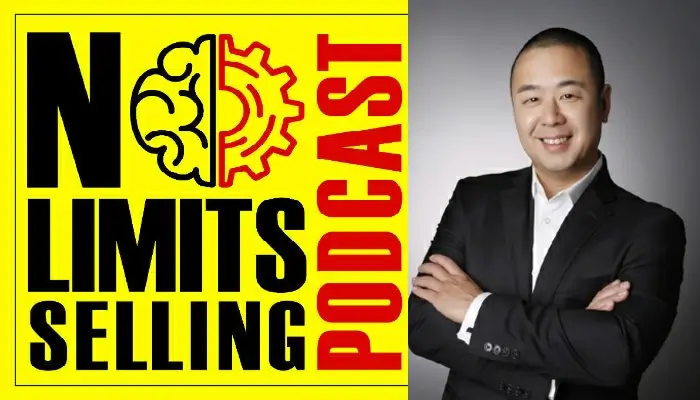Raymond Chin on How To Stay Driven
•Built Solidly on the business of referrals and going the extra mile for all our Clients and providing expert advice and superior results.
•We are a team of well-educated professionals with the foundation of old-school marketing blended with the new school of social marketing
•Growing and living in a multicultural & multi-ethnic society we understand and possess In-depth knowledge of all our Client's needs and wants.
•We have well-established and well-connected networks with Lawyers, Accountants, Lenders, Business Owners, and Professionals
•We believe in creative marketing and utilizing the latest in technology and tools for our industry to keep us ahead and on top

Summary
Introduction
The podcast begins with the host, Umar Hameed, introducing Raymond Chin, a successful real estate agent based in Ottawa, Ontario. Raymond has been a licensed real estate agent since 2008, transitioning from his previous career as a sushi chef. He shares his journey of how he learnt to be resilient and successful as he entered the real estate industry, initially intending to go to law school but pivoting due to financial constraints.
From Sushi Chef to Real Estate
Raymond's previous career as a sushi chef taught him the importance of precision and attention to detail, skills that he has carried over into his real estate career. He also learned the value of hard work and discipline, which he believes are crucial for success in any field.
Overcoming Adversity
Raymond shares a dark moment in his career when he faced significant financial challenges. He owed a large debt to the Canada Revenue Agency, which led to all his accounts being shut down. Despite this setback, Raymond was determined to fight and not let this adversity define him. He reached out to a friend for help, who lent him money without hesitation. This act of kindness and support propelled Raymond forward and served as a reminder of the importance of being resilient and successful with perseverance.
Building a Successful Team
Raymond discusses the dynamics of building a successful real estate team. He emphasizes the importance of finding the right personalities that fit the brand and the team's synergy. His team is structured in a unique way, with one of his partners preferring to stay behind the scenes, focusing solely on selling real estate without any desire for recognition or branding.
Productivity and Success
Raymond shares his morning routine as a key to his productivity and success. He wakes up early, hydrates, and starts working immediately. This routine allows him to get ahead of the day, assigning tasks and sending out messages before others start their day. He also incorporates exercise and time for listening to podcasts or news into his routine, which he views as his meditation time.
Conclusion
Raymond's journey from sushi chef to successful real estate agent is a testament to him being resilient and successful. His hard work and dedication in his story serve as an inspiration for others facing adversity and demonstrates the power of discipline, a strong work ethic, and a supportive network.
Questions & Answers
Who is Raymond Chin?
What was Raymond Chin's career before becoming a real estate agent?
What adversity did Raymond Chin face in his career?
How does Raymond Chin structure his real estate team?
What is Raymond Chin's morning routine?
What can we learn from Raymond Chin's journey?
Don’t miss this opportunity to transform your real estate career with one-on-one coaching. As an experienced real estate coach, I, Umar Hameed, am dedicated to helping you unlock your full potential and achieve your real estate goals. To learn more about who am I and my clients ↓
If you’re ready to take the next step, book an appointment with me today and begin your journey toward success in the real estate industry.
